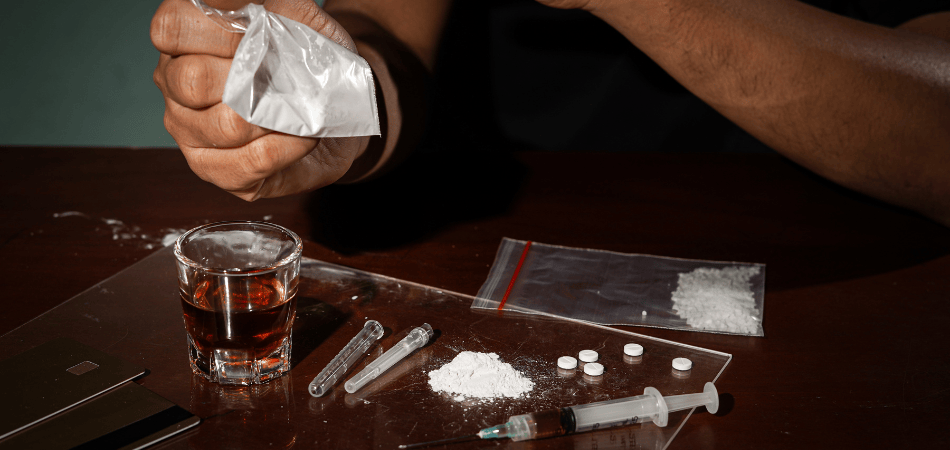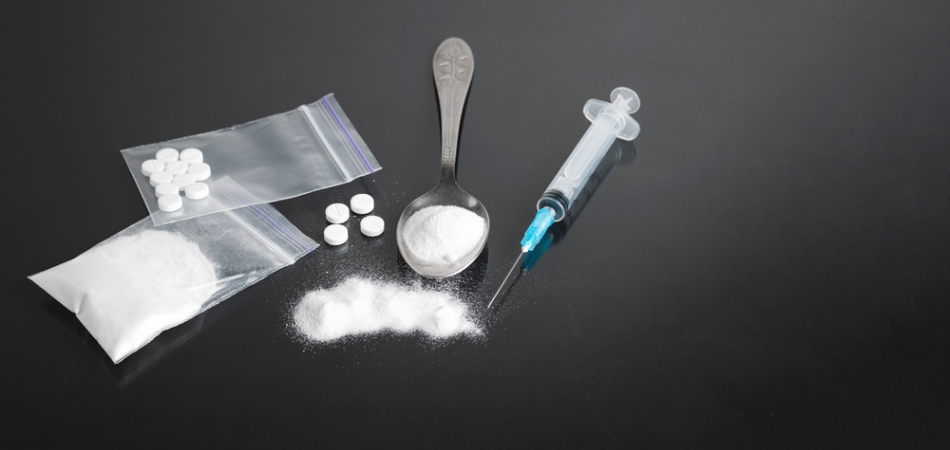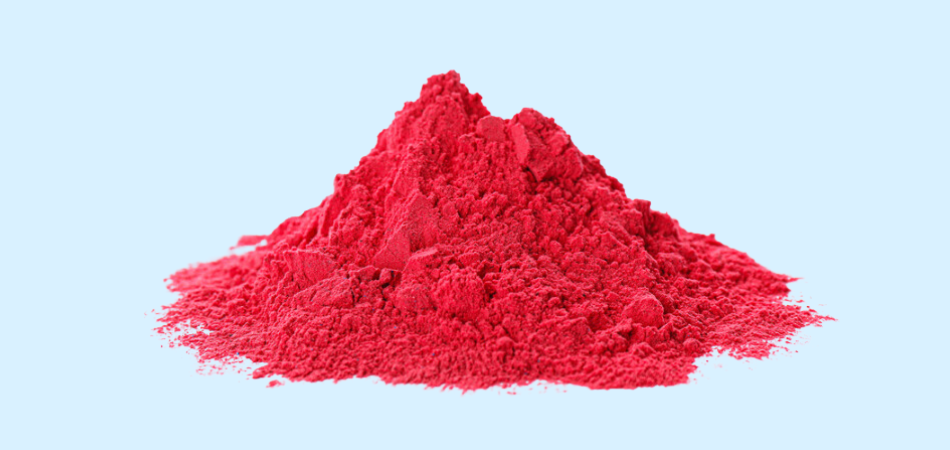Drug-related deaths in England and Wales have surged to levels we have never seen before. A recent report from the Office for National Statistics includes numbers that have never been reached since records began in 1993.
The number of deaths from 2023’s report indicates that the nation may be on the verge of a public health crisis.
This blog presents alarming highlights of the ONS’s findings. We aim to illustrate the severity of drug poisoning across the nation and provide guidance for people who have an addiction.

What is drug poisoning and what makes it so deadly?
Drug poisoning, or a state of “overdose,” is the life-threatening outcome of taking too much of a substance, combining different drugs together, or using drugs containing unknown, dangerous chemicals. When experiencing drug poisoning or an overdose, the body’s essential functions become severely impaired and can even stop altogether. The functions that are affected include:
- Your ability to breathe: Opioids and depressants can slow down your breathing (called repertory depression) or stop breathing altogether.
- The way your heart pumps blood: Many drugs impair your cardiovascular function. Taking an excessive amount of a harmful substance can create irregular heart rhythms (arrhythmia) or stop your heartbeat completely (cardiac arrest).
- The central nervous system: The way the brain regulates breathing and movement can be affected when taking a large amount of opioids, alcohol, or sedatives. This can often result in unconsciousness and comas.
- Liver and kidney function: When taking too much of a toxic substance, your liver and kidney’s ability to filter toxins depletes, which is incredibly dangerous and usually fatal.
The dangers of drug poisoning place many user’s lives on a razor’s edge, yet it’s not just people with a substance use disorder at risk. Anyone can run the life-threatening risks involved in drug poisoning. Many first-time users take excessive amounts without realising, resulting in overdose and accidental death.
Rising drug-poisoning deaths worldwide
The global picture of drug poisoning deaths shows a steady increase in the past 30 years. Research on the history of overdose deaths in the United States shows a steady increase year-by-year since 1999.
Further research into Hispanic and black communities shows that the rising trend in substance-induced deaths around the world is not abating. Novel life-threatening substances seem to be entering global supply chains every year. Clinicians strive to better understand the mortality rates of new synthetic drugs while the prevalence of substance use disorders (SUD) remains high.

What does the national picture look like?
Across England and Wales, statistics on drug-related deaths are ringing the alarm bells of media outlets and medical clinicians. The number of drug-poisoning deaths has reached a record high, suggesting a public health crisis looms on the horizon.
The latest report from the Office for National Statistics (ONS) shows that drug-related deaths are the highest since records began. In 2023, there were 5,448 deaths attributed to drug poisoning, marking an 11% rise from the 4,907 deaths recorded in 2022.
The overall picture of drug poisoning deaths in England and Wales may be enough for governmental concern. Some areas in England and Wales are affected more than others, and socioeconomic factors such as employment, housing, and income may play a part.
Here’s a map giving an overview of how different regions in England and Wales are affected:
Map: Richard Ault – taken from DataWrapper – Source: Office for National Statistics
Some significant findings in the statistics show that:
- The North East of England remains the hardest hit by this year’s statistics, with 174.3 deaths per million people. Drug poisoning deaths in Middlesbrough were particularly enhanced.
- London reported the lowest rate of drug-poisoning deaths at 58.1 deaths per million.
- Wales has seen significant increases in drug poisoning deaths, with 377 deaths registered. This equates to 129 deaths per million people, a substantial increase from the year before (110 deaths per million, 318 deaths)
Which drugs are contributing to the rising number of deaths?
A wide variety of illegal substances drives the surge in drug poisoning deaths across England and Wales. The range of drugs involved means that the causality of fatal drug poisoning will be better understood if we separate them.
Below, we examine the drugs responsible for the tragic rise in fatalities and highlight their growing prevalence and inherent risks:
Cocaine deaths
Cocaine-related deaths have surged at an alarming rate. There were 1,118 deaths recorded in 2023, a 30.5% increase from the 857 deaths in 2022. When measured over a longer period, the death toll in 2023 is nearly ten times higher than in 2011, when only 112 deaths were reported.
Cocaine’s popularity in nightclubs and its perception as a “party drug” make it one of the biggest contributors to the number of drug-induced deaths. Cocaine purchased at street level often contains lethal adulterants or “cutting agents” such as benzocaine and phenacetin.
Government reports suggest that the UK has the most severe crack cocaine issues in Europe. 65% of people starting treatment in Europe for crack use in 2017 were in the UK. Over the past decade, all parts of the UK have seen waves of increasing deaths related to cocaine in both powder and crack forms.
Amphetamines (including ‘Pink Cocaine’)
Amphetamine-related deaths have reached the highest levels ever recorded in England and Wales. In 2023, there were 228 deaths due to amphetamines, a 20% increase from the 189 deaths in 2022.
Included in these numbers is a drug known as “pink cocaine,” a synthetic drug cocktail ringing alarm bells in the UK, Spain and beyond. Despite the name, pink cocaine doesn’t usually contain cocaine. It’s often a mix of substances like MDMA (ecstasy), ketamine, and 2C-B (the abbreviation of 2C giving it another popular street name, “Tusi”) The result is an often fatal concoction of stimulant, hallucinogenic, and sedative effects.
Pink cocaine is thought to have originated in Latin America and distribution is now spreading internationally. In a major drug bust in September, Spanish authorities seized 21 kg of the substance in Ibiza and Malaga, marking their largest-ever synthetic drug operation.
The UK’s ominous increase in usage of pink cocaine is likely contributing to the alarming statistical findings.

Antipsychotics and Clozapine
Antipsychotics are medications used to manage mental health conditions like schizophrenia. People who take it experience chemical changes in the brain and it is usually used to manage symptoms of psychosis like hallucinations or delusions.
The reported antipsychotic-related deaths increased from 147 in 2022 to 188 in 2023, another statistic that is the highest ever put on record.
Among the varying forms of antipsychotics, Clozapine, specifically used for treatment-resistant schizophrenia, saw a staggering increase of 43%. Reported deaths rose from 16 in 2022 to 23 in 2023. This increase highlights the need for a greater public understanding of the associated risks that antipsychotics carry.
Nitazines and new synthetic opioids
More than half of the deaths recorded in the new findings involved opiates such as heroin and morphine. Nitazenes are one class of New Synthetic Opioids (NSO) and are emerging as an alarming contributor to drug poisoning deaths.
Nitazines are lab-made and are relatively cheap to produce. They come in liquid, pill, or powder form and run the same risks as other street substances for being laced or cut with adulterants. They generally mimic the effects of heroin but are also significantly more potent.
There were delays in publishing data specific to these substances, so it’s not entirely clear how many opiate deaths in 2023 were caused by synthetic opioids like Nitazenes. The new drugs are covered in the UK’s Psychoactive Substances Act 2016, as research continues to evolve into the profound dangers they pose to public health.
Drug-related suicides
Having an addiction to alcohol or drugs can make a person up to 14 times more likely to commit suicide. The statistics published by the Office For National Statistics also include a concerning spike in suicides linked to drug use. Statistics on drug-related suicide in England and Wales include:
- Antidepressant-related suicides saw a rise of 23%, with deaths climbing from 155 in 2022 to 192 in 2023.
- Amphetamine-related suicides nearly doubled in just one year.
Research shows that drug overdose is one of the most common methods of suicide, accounting for 45% of all cases. Being at the mercy of an addiction creates a dangerous system of dependence, leading people down a path of self-isolation and self-destruction.
The ONS report also shows that more than half of drug-related suicides include deaths from more than one drug, making it challenging to isolate the exact relationship between drugs and suicidal tendencies.
What can be done if someone is facing drug poisoning?
When we see someone experiencing drug poisoning or an overdose, the fear can be overwhelming. At this point, it is critical to call for help; the right timing can be the difference between life and death.
If drug poisoning or an overdose is starting, you may recognise early symptoms as:
- Nausea and vomiting
- Severe stomach cramps and diarrhoea
- Feverish high-temperature or chills and shivering
- Marked mental confusion and stupor
- Seizures and loss of consciousness
- Slowed or irregular breathing
- Pale or blue-tinged clammy skin
If you are concerned that someone is experiencing drug poisoning or an overdose, call 999 emergency services in the UK for immediate medical support. Remain with the person until help arrives.

Where can I get help with my addiction?
The staggering statistics show that help with addiction is more important now than ever. If any of the points raised today resonate with you or a loved one, we want to reach out to you.
Here at UKAT, we understand how long and difficult the recovery process can be. We have designed substance detox programmes that help to slowly and permanently eliminate addiction from your life. Our expert staff deliver detox, therapy and aftercare programmes to help you navigate the path to a healthier, substance-free life.
We are only one mouse click or one phone call away. Reach out to us today to help you on your journey to lifelong sobriety.
References:
- Deaths Related to Drug Poisoning in England and Wales – Office for National Statistics, Office for National Statistics, 22 Oct. 2024, www.ons.gov.uk/peoplepopulationandcommunity/birthsdeathsandmarriages/deaths/bulletins/deathsrelatedtodrugpoisoninginenglandandwales/2023registrations
- NIDA. Drug Overdose Deaths: Facts and Figures .” National Institute on Drug Abuse, 21 Aug. 2024, https://nida.nih.gov/research-topics/trends-statistics/overdose-death-rates
- Sciences, National Academies of, et al. “Opioids, Other Drugs, and Alcohol.” High and Rising Mortality Rates Among Working-Age Adults., U.S. National Library of Medicine, 2 Mar. 2021, www.ncbi.nlm.nih.gov/books/NBK571943/
- “Serious Crime Act 2015 Explanatory Notes.” Serious Crime Act 2015 – Explanatory Notes, www.legislation.gov.uk/ukpga/2015/9/notes/division/3/4?view=plain
- “United Kingdom Drug Situation 2019: Summary.” GOV.UK, www.gov.uk/government/publications/united-kingdom-drug-situation-focal-point-annual-report/uk-drug-situation-2019-summary
- “What Is Pink Cocaine?” Poison Control, www.poison.org/articles/pink-cocaine
- Palamar JJ. Tusi: a new ketamine concoction complicating the drug landscape. Am J Drug Alcohol Abuse. 2023 Sep 3;49(5):546-550. doi: 10.1080/00952990.2023.2207716. Epub 2023 May 10. PMID: 37162319; PMCID: PMC10636235.
- “What Is the Recreational Drug ‘Pink Cocaine’?” Euronews, www.euronews.com/health/2024/10/23/what-is-the-recreational-drug-pink-cocaine
- “Psychoactive Substances Act 2016.” Legislation.Gov.Uk, King’s Printer of Acts of Parliament, www.legislation.gov.uk/ukpga/2016/2/contents/enacted
- NHS Choices, NHS, www.nhs.uk/live-well/alcohol-advice/the-risks-of-drinking-too-much/
- Oyefeso A, Ghodse H, Clancy C, Corkery JM. Suicide among drug addicts in the UK. Br J Psychiatry. 1999 Sep;175:277-82. doi: 10.1192/bjp.175.3.277. PMID: 10645331.


